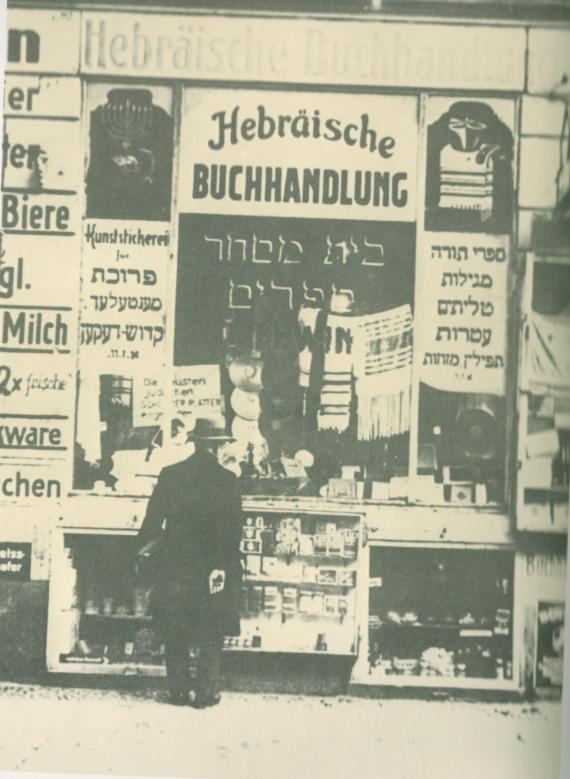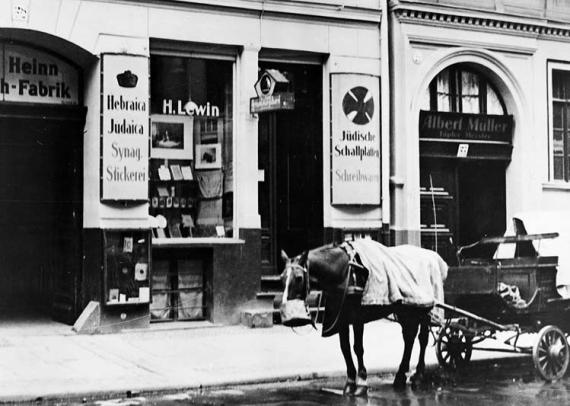Almstadtstraße 10
10119 Berlin
Germany
After working at another Jewish bookstore in the neighborhood, Hirsch (Tzvi) Lewin opened his own at Grenadierstra;e 28 in 1930, calling it the "Hebräische Buchhandlung" although it sold a wide variety of Judaica (ritual items) in addition to Jewish books. Rare books were kept in the basement. Another one of the store's sidelines, gramophone records, became its new specialty as Lewin founded the Semer music label in 1932 and began recording Jewish singers, especially cantors and theatrical performers, in a recording studio inside the bookshop. Lewin lived in back rooms of the store with his wife Rodl née Papish and his children Zev, Lilly, and Rivke. The store, its contents, and many recordings were destroyed during the pogrom of November 1938, but many of the recordings survived abroad. The Lewin family survived the war and reunited in Palestine, where Hirsch Lewin restarted his record business. The label he founded there in 1947, Hed Arzi, still exists today and is the oldest in the country.
In the 1990s to early 2000s, three music scholars searched the world for surviving copies of Semer's and other Jewish recordings from Germany of this period, eventually releasing an 11-disc set called "Vorbei... Beyond Recall," much of which is now available on Spotify. In 2012, coinciding with the Jewish Museum Berlin's Berlin Transit exhibition, a musical group was formed called the Semer Ensemble dedicated to performing new versions of the songs in the old recordings. Zeev Levin, Hirsch's son, attended the first concert in Berlin.


Add new comment